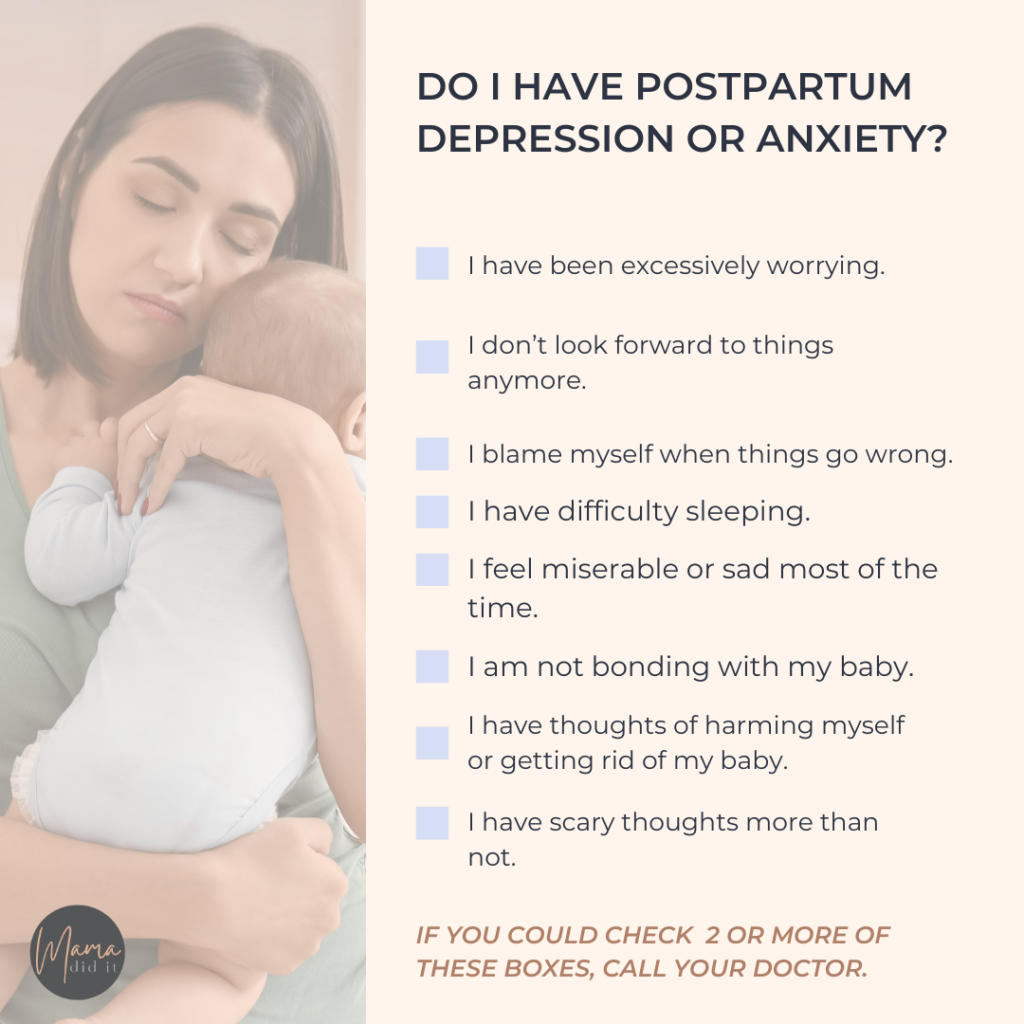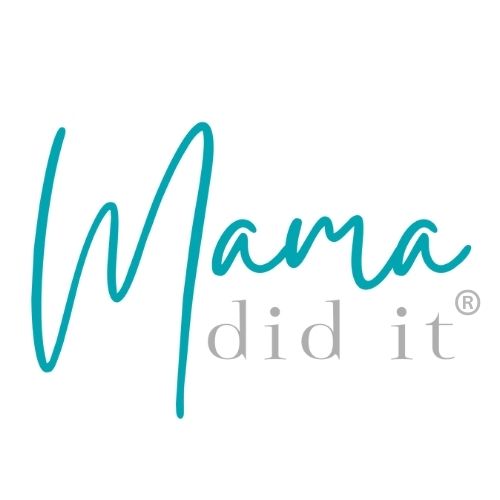Postpartum week six is a huge milestone in the fourth trimester! Here’s what to expect, as well as all about that six-week postpartum check-up.
Ahhhh, you did it! Though postpartum isn’t over, you have reached a wonderful milestone. Postpartum Week Six is a shift through a new door if you will. I’m here to talk all about where you are in this journey as well as give you some postpartum care tips for this week.
If you’ve been going through my postpartum timeline, you know that I’ve been a postpartum nurse for over fifteen years. In the last several years, I have stepped into the role of doula and seen a whole new side to postpartum recovery.
More than anything, I have found that we do a great job of caring for mothers during pregnancy, but not so much with caring for them in postpartum. Would you agree? I’m currently writing a book to fill some of these gaps!
Postpartum Week Six
One of the most important things to remember at this six-week mark is to celebrate how far you have come! It’s not about “being done” with postpartum. It’s about being present in the moment you are in and learning to give yourself grace as new parents.
I personally believe that the major changes you experience in postpartum and baby life last around three months. Right now, your new baby still thinks they are the same as you! They will want to be with you everywhere you go and keep you in sight at all times. This doesn’t make them clingy. They basically are still experiencing womb life but on the outside.
A baby wrap helped save my sanity in the fourth trimester. I felt like I had my arms free once again! Here’s my favorite.
The 6-Week Rule
There isn’t anything focused on more in postpartum care than the 6-week rule. Here’s why it matters.
Doctors, nurses, and other healthcare providers lay out a 6-week rule guideline for exercise and sex. Though some moms may be ready to start exercising before six weeks, the guideline is there because research tells us that no matter your fitness levels before delivery, your birth story, or recovery journey, six weeks is a safe time to start exercising again.
If new moms were active before delivery, and had no birth repairs or complications, they are more than likely ready for kind movements or walking within the first few weeks of delivery. No reason to rush though. There’s not a “right way” here. It’s highly individual to your story.
The six-week rule for sex exists for several reasons:
- If you had a tear or episiotomy, the stitches need time to heal. Doing the deed too early can result in ripping stitches.
- When you birth your placenta, it leaves a dinner plate-sized wound in your uterus. As your uterus shrinks, so does the wound, but sex too early can introduce infection.
- If your cervix dilated (which is a must for vaginal birth), it takes several weeks to close completely. Getting busy too early can again introduce infection. No thank you!
The 6-Week Postpartum Check-Up
It’s time for that postpartum appointment! Here’s what to expect:
- A pelvic exam. It’s going to feel much like a yearly pap smear, maybe even less uncomfortable now that you’ve given birth. Your healthcare provider will check any repairs from episiotomies or tears to be sure they have healed well.
- They will also be sure your uterus is back to normal size. It should be back to its pre-pregnancy size now. Your body and weight however will probably not be. It takes several months for the pregnancy changes to melt away.
- They will discuss sexual activity and birth control options with you. 99% of women are given the green light for sex at their six-week checkup. Keep in mind, that this doesn’t make you “back to normal.” It just means it’s safe to have sex again and you aren’t going to hurt anything. For the whole scoop on sexual intercourse, read “8 things you should know about sex after birth.”
- They will discuss postpartum depression with you and see how your emotions are doing.
- They will check your weight and vital signs. Most women lose between 15-25 pounds by this point or roughly around half the weight you gained in pregnancy.
The Other 6-Week Appointment
Now is a great time to see a pelvic floor physical therapist. Beginning physical therapy between six and eight weeks postpartum helps you heal your pelvic floor muscles well. Even cesarean section moms benefit from pelvic floor PT!
Many insurance plans are beginning to cover this type of physical recovery (yay!). If you haven’t already, now is a good time to introduce kegel exercises. No need to do 100 here! They mostly help your pelvic floor when you do 5-10 a few times a week.
To do a proper kegel, find a spot you can lie down on your back or side. Relax and keep free from distraction if possible. Relax your body and unclench your butt. Inhale deeply. Exhale slowly, and as you exhale, imagine lifting a blueberry with your vagina. Hold for a few seconds. Inhale again and as you inhale, put the blueberry back down.
A pelvic floor physical therapist can also help you with diastasis recti (the normal separation of muscles in your stomach during pregnancy.) As you progress through postpartum recovery, this should slowly begin to come together on its own.
Vaginal Bleeding:
Lochia vaginal discharge has stopped by now. If you are formula feeding, you may have started your first postpartum period. If this is the case, consider yourself fertile! If you don’t want another baby yet, talk to your doctor about family planning.
Rarely, a breastfeeding mom will start her period around now. Usually, it will be several more months and can even be past the year mark before the first period. Crampy and heavy bleeding is normal with the first period, but so is light bleeding and no cramping. It totally depends on the person.
Exercise:
If you haven’t started exercise and feel ready to, go for it! A great starting aerobic exercise is walking. Walking is underrated! It has so many benefits for our physical and mental health. Keep it under 30 minutes at first.
Other exercises like pilates, yoga, or low-impact aerobics can be a great first start to getting back to exercise. A mommy and me exercise class can also be great emotional support as you get to be with others in the same season of life as yourself.
Don’t be surprised if your energy levels are still low. A lack of sleep plus recovering and caring for an infant are no joke! It takes time to get your energy back. Exercising for at least ten minutes a day may help you begin to build energy again.
Emotions:
You are well past the baby blues. Another yay! Your emotional health is still in a vulnerable place though. Between the sleep deprivation and ongoing hormonal changes, new mothers are at risk for postpartum anxiety or postpartum depression.

USUALLY, if you are going to experience these things, you have already begun to. Be sure and be honest with your healthcare provider about how you are feeling and what you need. If you are having intrusive thoughts that are disrupting your sleep, are excessively worrying, are having trouble functioning from day to day, or feel you are unable to enjoy your growing baby, let your doctor know. These are all signs of a possible postpartum disorder.
Breastfeeding:
It’s common for mothers to feel their breast milk supply has tanked at six weeks postpartum. This may be true, but probably isn’t. Our bodies become really efficient at breastfeeding. What was first guided by big rushes of hormones, now is more on autopilot. Click here to see how to tell if your baby is getting enough.
Nipple soreness for the most part should be a thing of the past. It’s a good plan to use nipple butter, coconut oil, or lanolin to help prevent sore nipples. If you are having nipple pain that lasts more than a few seconds after latching on, be sure your baby is latching deeply. Their mouth should be open wide like a yawn before you pull them in. Be sure their lips are flared open like a fishy.
You may still experience breast engorgement from time to time, especially if your baby skips a nighttime feeding. Using warm compresses before nursing and cold compresses after nursing can help. No need to pump unless you are wanting to build a freezer stash or you are too uncomfortable not to. Lactation support groups can be helpful for working through issues or for meeting other new moms.
Postpartum Week Six
Now may be a good time to begin to reflect on your birth experience. Much of the time, it can feel like a blur. There’s a good chance you haven’t processed it all yet, especially if you had unexpected interventions. Cesarean delivery that happened when a vaginal birth was expected, can bring some grief.
Not feeling heard can cause powerless feelings. I sincerely hope you had your ideal birth story, but if you didn’t, don’t rush past how you are feeling about it. If you are struggling, it matters. Take the time to process and heal.
Postpartum week six is not a finish line, but a mile marker. Don’t be surprised if you don’t feel normal quite yet. You are still healing and leaning into this motherhood thing. The best is yet to come!
